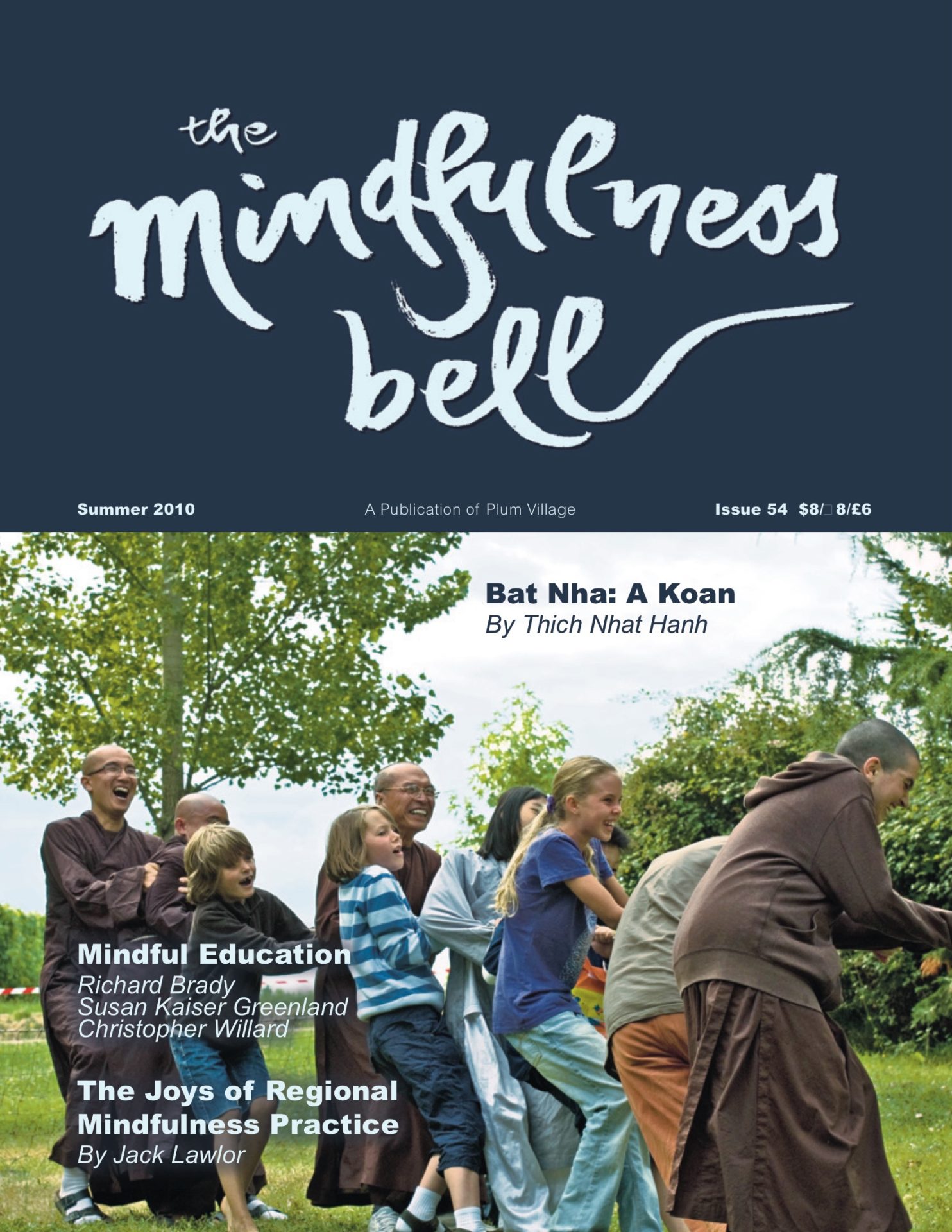Thay’s Celebrating Hanoi’s Anniversary
By Susan O’Leary
Within weeks of the final official dispersion of the Bat Nha monastics, Thay presented us with two powerful teachings: Bat Nha: A Koan and Celebrating Hanoi’s Anniversary. The koan asks us to look deeply, to become determined to penetrate its meaning by reading and remaining with the experiences, perceptions, and questions of five people touched by Bat Nha.
Thay's Celebrating Hanoi's Anniversary
By Susan O’Leary
Within weeks of the final official dispersion of the Bat Nha monastics, Thay presented us with two powerful teachings: Bat Nha: A Koan and Celebrating Hanoi’s Anniversary. The koan asks us to look deeply, to become determined to penetrate its meaning by reading and remaining with the experiences, perceptions, and questions of five people touched by Bat Nha. The Twelve Proposals—based not in Zen stories but in ethical action—can also be pivotal teachings for Thay’s students as we practice engaged Buddhism in the world. Strong, fearless proposals grounded in the thousand-year-old wisdom of Zen Master Van Hanh, they remind us to return to our roots as refuge when acting. They call for compassion and generosity, ethical study and leadership, global care and stewardship, and true ecumenical religious freedom.
The koan and the proposals are close teachings of the Bat Nha era. In the koan story of the communist government official, Thay refers to the 1,000-year anniversary of the founding of Hanoi.
Reading them together and remembering in our hearts the loving, concentrated actions of the Bat Nha monks and nuns, might shed light for practitioners on the Tenth Mindfulness Training of the Order of Interbeing, a sometimes difficult training to resolve.
The Tenth Mindfulness Training: Protecting the Sangha
Aware that the essence and aim of a Sangha is the practice of understanding and compassion, we are determined not to use the Buddhist community for personal gain or profit or transform our community into a political instrument. A spiritual community should, however, take a clear stand against oppression and injustice and should strive to change the situation without engaging in partisan conflicts.
Just as the personages of the koan kept questioning, we might also ask questions like these in reading Thay’s proposals:
- Am I taking a clear stand against oppression and injustice?
- Are my actions grounded in inclusiveness, non-fear, and nonduality?
- Is my action an action or reaction? Does it demonstrate that I do not see others as separate from myself?
- Does my action arise from an inner freedom of compassion and understanding?
Thay’s writings of this era remind us to be engaged in the world while having no enemies. To find the beauty as we breathe and walk in moments of suffering. An engaged Buddhist political action resides in non-fear and non-duality. It is grounded in kindness and inclusiveness, and does take a stand. The action itself manifests the teachings.
Susan O’Leary, Deep Confidence of the Heart, practices with the SnowFlower Sangha in Madison, Wisconsin. She is the author of several books and essays.

